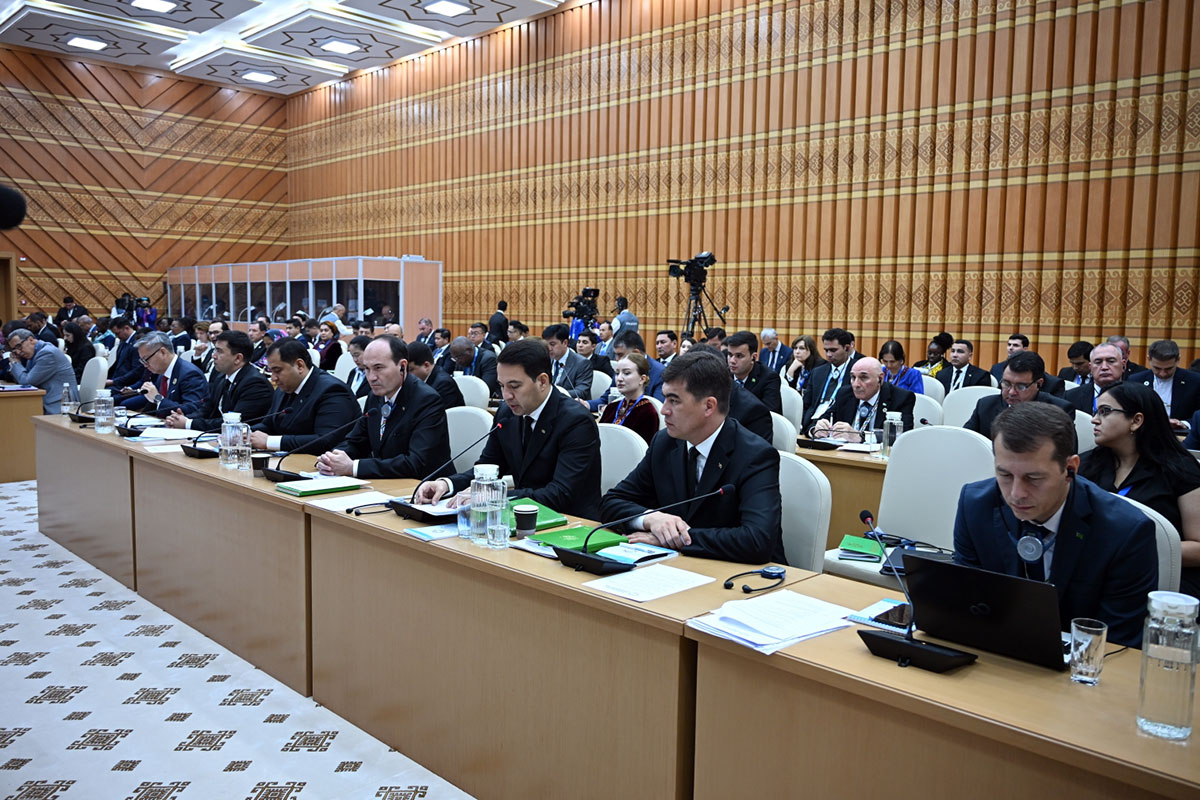 14569
14569
The Ministerial Meeting on South-South Cooperation was held today at the "Avaza" National Tourism Zone within the framework of the Third United Nations Conference on Landlocked Developing Countries.
South-South Cooperation represents an important direction of international interaction, primarily uniting developing countries from Asia, Africa, Latin America, and Oceania. This format of relations, based on the principles of mutual respect, equality, solidarity, and mutual benefit, is a unique example of traditional cooperation between developed and developing countries.
The main goals of the South-South partnership are the joint solution of development challenges, the exchange of experience and technologies, as well as the strengthening of economic, cultural-humanitarian, and political ties between states.

The history of South-South Cooperation dates back to the mid-20th century. At the Bandung Conference in 1955, the countries of the Global South declared their commitment to cooperation and mutual support. This became the starting point for the formation of the Non-Aligned Movement and the expansion of South-South Cooperation.
Today, cooperation in this format covers a wide range of areas: from agriculture and industry to science and education, healthcare, technology, infrastructure, and energy. Within this framework, countries exchange advanced experience, conduct joint research, and implement projects aimed at ensuring food security, developing sustainable energy, and improving the quality of education and healthcare.
One of the characteristic features of this partnership is the development of solutions adapted to the specifics of countries with similar levels of development and economic structures. This approach contributes to the creation of more effective growth models, strengthening regional integration, and developing trade ties, thereby creating favorable conditions for sustainable economic development.
In the current conditions of globalization, the importance of South-South Cooperation is significantly increasing. This format encourages the formation of an inclusive international system in which developing countries act as active and equal participants. International organizations such as the United Nations Conference on Trade and Development (UNCTAD) and regional associations also play a significant role in coordinating initiatives within South-South Cooperation.
The Vienna Programme of Action emphasizes the importance of South-South Cooperation in promoting the economic growth of landlocked developing countries. In particular, the document highlights the importance of exchanging experience in customs, border, and transport administration and the simplification of trade procedures. The Awaza Programme of Action for 2024–2034 also confirms the important role of South-South Cooperation and triangular cooperation in advancing the fundamental development priorities of these countries.
During the event, participants discussed issues related to ensuring access to modern technologies and know-how in LLDCs within South-South and triangular cooperation. This is a necessary condition for carrying out structural reforms and strengthening economic stability. It was noted that the exchange of experience and technologies among Global South countries contributes to the creation of innovative ecosystems that take into account their needs and facilitates independent development.
Special attention was paid to the formation of national policies in the fields of digitalization and innovation. It was emphasized that the development and implementation of comprehensive strategies that provide an effective legal framework for the digital transformation of the economy and accelerate structural reforms at the national level are of key importance.
